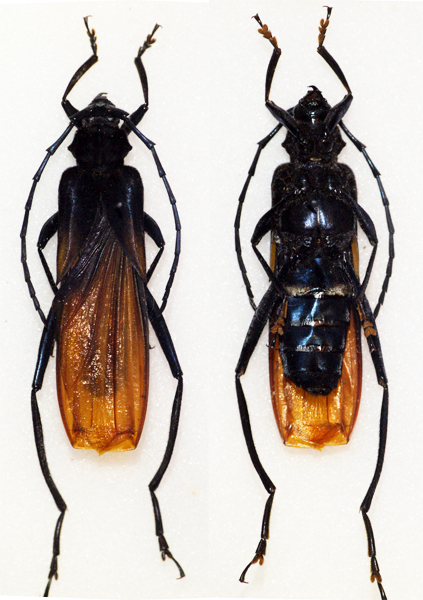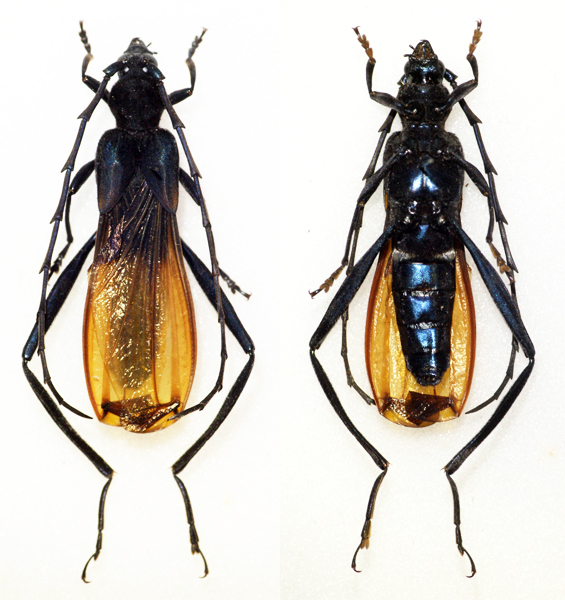| T O P I C R E V I E W |
| Bennyboymothman |
Posted - 01/03/2014 : 18:04:47
 
Hello all
Having a bit of trouble with these two Scalenus species.
Both were labelled as Scalenus ismaeli, although I am not sure whether they are a pair, or the second one is hemipterus?
Any help appreciated as I can't find any information on the web about separating the Scalenus species.
Regards
Ben |
| 4 L A T E S T R E P L I E S (Newest First) |
| Pierre |
Posted - 13/07/2019 : 08:11:22
left: female of Scalenus (Scalenus) philippensis Bentanachs & Drouin, 2014. Elytra with little blue reflections, apex brownish.
right: male of Scalenus (Scalenus) ysmaeli Hüdepohl, 1987. Elytra black with stong blue reflections. Hind wings black (with metallic reflections), or yellow-brown. |
| dryobius |
Posted - 19/03/2014 : 13:40:01
Hello Ben,
It is very possible that the two photographs represent different species. I can only make speculation. Besides one being female and the other a male, it appears that there are differences in the sides of the pronotum. S. ysmaeli should have a rounded pronotum.
I believe Eduard Vives and/ or Joan Bentanachs would be interested in examining the specimen from Mindanao.
On Luzon, there is apparently just S. ysmaeli, and the dealers on Luzon had many to sell a couple of years ago.
On Mindanao, there could occur the species S. hemipterus, however to suggest that your female is S. hemipterus is not good science. |
| Bennyboymothman |
Posted - 02/03/2014 : 13:57:37
Sorry forgot to add data
Female
01-2014
Mindanao
Philippines
Male
08-2013
Belance Nueva Viscaya
North Luzon
Philippines
|
| dryobius |
Posted - 02/03/2014 : 13:44:36
Scalenus ysmaeli.
It is variable in color and the only species known from the Philippines.
As a general rule, it is very helpful to provide data with a photo. The Philippines have thousands of islands. Species that occur on Luzon are usually not found on Mindanao.
The local collectors on Luzon must have discovered a way to get this species in quantity. |


